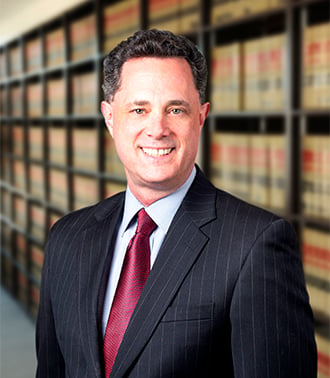Jonathan Gleklen serves as Chair of the firm's U.S. Antitrust/Competition practice and in 2021-2022 served as the Chair of the 9,000-member American Bar Association Antitrust Law Section. His practice focuses on antitrust issues affecting clients in high technology and network industries, including government merger review and investigations of alleged anticompetitive conduct, civil litigation, and counseling. He regularly represents clients before the Antitrust Division of the Department of Justice, the Federal Trade Commission, and state attorneys general and has been ranked as a leading antitrust lawyer by publications including Chambers USA, PLC's Competition Law Handbook, Super Lawyers, and the International Who's Who of Competition Lawyers and Economists. Jonathan was one of nine U.S. antitrust lawyers identified as a "Client Service All-Star" in 2019 based on a poll of senior in-house counsel by BTI Consulting Group. He received the same recognition in 2016.
Before becoming Chair of the ABA Antitrust Law Section, he served as the Section's Chair-Elect, Vice Chair, Committee Officer, Publications Officer, and International Officer. He frequently speaks and writes on antitrust subjects, serving as the Editorial Chair of Antitrust Law Developments (7th Ed. 2012), the leading two-volume antitrust treatise, and earlier served as Editorial Chair of the Antitrust Law Journal.
Experience
- General Electric in the $11 billion merger of Wabtec and GE Transportation. After a second request investigation that focused on potential vertical theories, the transaction was permitted to proceed without any remedy.
- Adobe in its $4.75 billion acquisition of Marketo, the leading marketing cloud platform for B2B marketing engagement.
- Monsanto in connection with its $66 billion acquisition by Bayer, which closed after a 20-month DOJ investigation leading to what the DOJ characterized as "the largest negotiated merger divestiture ever required by the U.S." The transaction was reviewed and approved by antitrust enforcers in the U.S., the EU, and almost 30 other jurisdictions.
- General Electric in its transaction combining GE Oil & Gas with Baker Hughes to create a new publicly-traded company owned 62.5% by GE with $23 billion in combined revenue. After a second request, the transaction closed after GE agreed to a consent decree requiring only the divestiture of a business that GE had announced its intention to sell at the same time it announced the Baker Hughes transaction.
- Bloomberg L.P. in its $800 million acquisition of Barclays Risk Analytics and Index Solutions Ltd., which offers the widely used Barclays fixed income benchmark indices and BRAIS strategy indices.
- General Electric in its $10.6 billion acquisition of Alstom's power and grid business, GE's largest-ever industrial acquisition. The transaction closed after a second request pursuant to a DOJ consent decree that required the post-closing divestiture of a small Alstom business that serviced GE gas turbines.
- Hikma Pharmaceuticals in its $2 billion acquisition of the Roxane generic drug business and US$300 million acquisition of generic injectable assets of Bedford Laboratories from a subsidiary of Boehringer Ingelheim.
- General Electric in the FTC investigation of Thermo Fisher Scientific's acquisition of Life Technologies and GE's $1.06 billion acquisition of the cell culture, gene modulation, and magnetic bead businesses from Thermo pursuant to the FTC consent decree.
- Monsanto in its $930 million acquisition of The Climate Corporation.
- General Electric in its joint venture with Microsoft to create Caradigm, which combined certain of the parents' health care information technology assets to develop and market an open healthcare intelligence platform and related clinical applications.
- Intel in its $7.68 billion acquisition of security software firm McAfee. The transaction was cleared without a second request in the U.S. and with Phase I commitments in the European Union.
- GrafTech International, a leading manufacturer of graphite electrodes, in connection with its $700 million acquisition of C/G Electrodes and Seadrift Coke (which manufactures a key raw material used to produce graphite electrodes). The acquisition of C/G closed after a second request without any remedy, and GrafTech was permitted to close its acquisition of Seadrift after agreeing to a consent decree that addressed DOJ's concerns about GrafTech gaining access to its competitors' confidential information.
- Visa USA in connection with Visa's global reorganization that combined Visa entities worldwide (other than Europe) to create the new Visa Inc.
- Adobe in its $3.4 billion acquisition of Macromedia, a leading developer of software used by creative professionals and web developers. Transaction permitted to close without divestitures after second request.
Perspectives
Recognition
Antitrust — Nationwide (2017-2022)
Credentials
Education
- J.D., University of Chicago Law School, 1993, with honors
- B.A., Yale University, 1988, cum laude
Admissions
- District of Columbia
Activities
- Chair of the Governance & Nominating Committee, Anti-Defamation League Washington, D.C. Regional Board and member of the Anti-Defamation League Global Leadership Council and National Commission
- Former Chair, ABA Antitrust Law Section
- Member, American Law Institute
- International Board of Advisors, George Mason University Global Antitrust Institute

